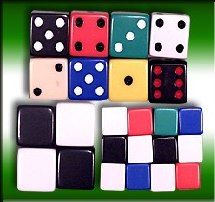
Itamar Pitowsky
Dept. of Philosophy, The Hebrew University of Jerusalem
The application of probability theory to physics began in the 19th century with Maxwell's and Boltzmann's explanation of the properties of gases in terms of the motion of their constituent molecules. Now the term probability is not a part of the (classical) theory of particle motion; so what does it mean, and where does it come from? Boltzmann thought to reduce the meaning of probability in physics to that of relative frequency. Thus, eg., we never find a container of gas in normal circumstances (equilibrium) with all of its
 molecules on the right hand side. Now, suppose we could prove this from the principles of mechanics- that a dynamical system with a huge number of particles almost never gets into a state with all its particles on one side. Then, to say that such an event has a vanishing probability would simply mean (and not only imply) that it is very rare.
molecules on the right hand side. Now, suppose we could prove this from the principles of mechanics- that a dynamical system with a huge number of particles almost never gets into a state with all its particles on one side. Then, to say that such an event has a vanishing probability would simply mean (and not only imply) that it is very rare.
I shall explain Boltzmann's program and assumptions in some detail, and why, in spite of its intuitive appeal, it ultimately fails. We shall also discuss why quantum mechanics with its "built in" concept of probability does not help much, and review some alternatives, as time permits.
For more information
about Itamar Pitowsky, visit his web
site. See his presentation
slides.
Additional resources for this talk: video.
|

